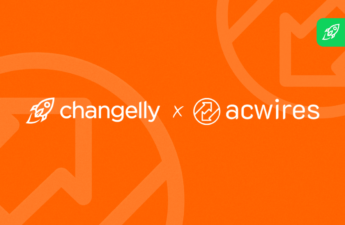UK banks are getting tougher on customers using crypto. In the past week, two of the country’s biggest banks—Nationwide and HSBC—cracked down by applying daily limits for buyers or restricting credit cards from making crypto purchases.
These two banks aren’t the only ones: a number of banks over the past year have got tougher. Some took a tougher stance following the collapse of mega digital asset exchange FTX back in November.
According to most U.K. high-street banks with limits, the crackdown is to protect investors from cryptocurrency fraud. “We want to do everything we can to protect our customers and we feel that limiting payments to cryptocurrency exchanges is the best way to make sure your money stays safe,” Santander says.
So what are the current rules? Here is the low-down on which banks are crypto-friendly for the retail investor.
Nationwide
Been offered a cryptocurrency investment opportunity?
If someone offers you a low risk, high reward crypto investment, be cautious. This could be a scam.
Many cryptocurrency investments aren’t regulated, so you’re unlikely to get your money back if something goes wrong. pic.twitter.com/bgb3PLbAHT
— Nationwide Building Society (@AskNationwide) October 15, 2021
Major high-street bank Nationwide this week said it was setting up new restrictions to “help protect you and to try and keep your money safe.” Customers can no longer buy crypto with credit cards and with debit cards, and there are daily limits of £5,000 ($5,965).
HSBC
HSBC this week also imposed tougher rules. Now, customers cannot buy any digital assets from exchanges using credit cards. Those who bank with HSBC can buy crypto with a debit card through certain U.K.-regulated platforms—but not exchanges like Coinbase.
The banking giant has said it has no interest in Bitcoin and has banned customers from buying stocks of companies with Bitcoin exposure.
Lloyds
Lloyds allows its clients to buy crypto via U.K.-regulated platforms and make withdrawals from exchanges such as Coinbase—but only using debit cards.
It was one of the first banks in the U.K. to stop its clients from buying crypto with credit cards back in 2018.
NatWest
NatWest Group CEO Alison Rose last month said that the bank had “taken a pretty hard line as a bank on crypto.”
And in 2021, the bank barred corporate customers who deal in cryptocurrencies. That means companies like crypto exchanges with a base in the U.K. cannot hold accounts at NatWest.
But right now, according to the bank, that “doesn’t mean that we block cryptocurrency payments altogether but we will restrict payments to cryptocurrency exchanges that present the highest risk of financial harm.”
You can use a NatWest account to buy digital assets from exchanges such as Coinbase. Amounts are limited, according to the bank, though NatWest has not revealed exactly by how much.
Barclays
Barclays bank does not allow customers to buy or sell crypto through its online banking platform. Would-be investors can buy crypto via a regulated, FCA-approved broker, though.
Barclays was one of the U.K. banks that stopped customers making payments to crypto exchange Binance in 2021 after the British regulatory body FCA issued a warning over exchange.
Santander
High-street bank Santander announced last year that it would be limiting U.K. customers from making large crypto transactions. As it stands, those who bank with Santander can make single transactions of £1,000, with a total limit of £3,000 in any rolling 30-day period.
A crypto trader who banks with Santander told Decrypt that his account was closed without warning after making withdrawals from Coinbase.
Wise
Formerly known as TransferWise, Wise does not deal in cryptocurrencies at all. And you can’t use an account to buy digital assets from an exchange. But Wise customers can receive money to their account from a platform that deals with crypto if it is regulated in the EU or UK.
Monzo
You can buy cryptocurrency on big, established exchanges such as Coinbase (but not Binance) with popular challenger bank Monzo, but it “may block a small number of transactions based on risk.” The bank does not say how big or small these transactions are.
Starling
Challenger bank Starling is one of the strictest: it has banned customers from all crypto-related payments. “We consider crypto activity to be high risk,” the bank said in November. Starling clients told Decrypt that the move was sudden.
Hi there 👋 We always review our position in relation to financial crime. We consider crypto activity to be high risk. We’ve taken the decision to prevent all card payments to crypto merchants and to implement further restrictions on outgoing and incoming transfers.
— Starling Bank (@StarlingBank) November 22, 2022
Revolut
This challenger bank is the most crypto-friendly of them all: users can buy, sell, and store a number of digital assets via the mobile banking app. And just last month, the bank launched a staking service for Ethereum, Cardano, Polkadot, and Tezos.
Stay on top of crypto news, get daily updates in your inbox.
Source: https://decrypt.co/122666/uk-crypto-crackdown-which-british-banks-buy-bitcoin



